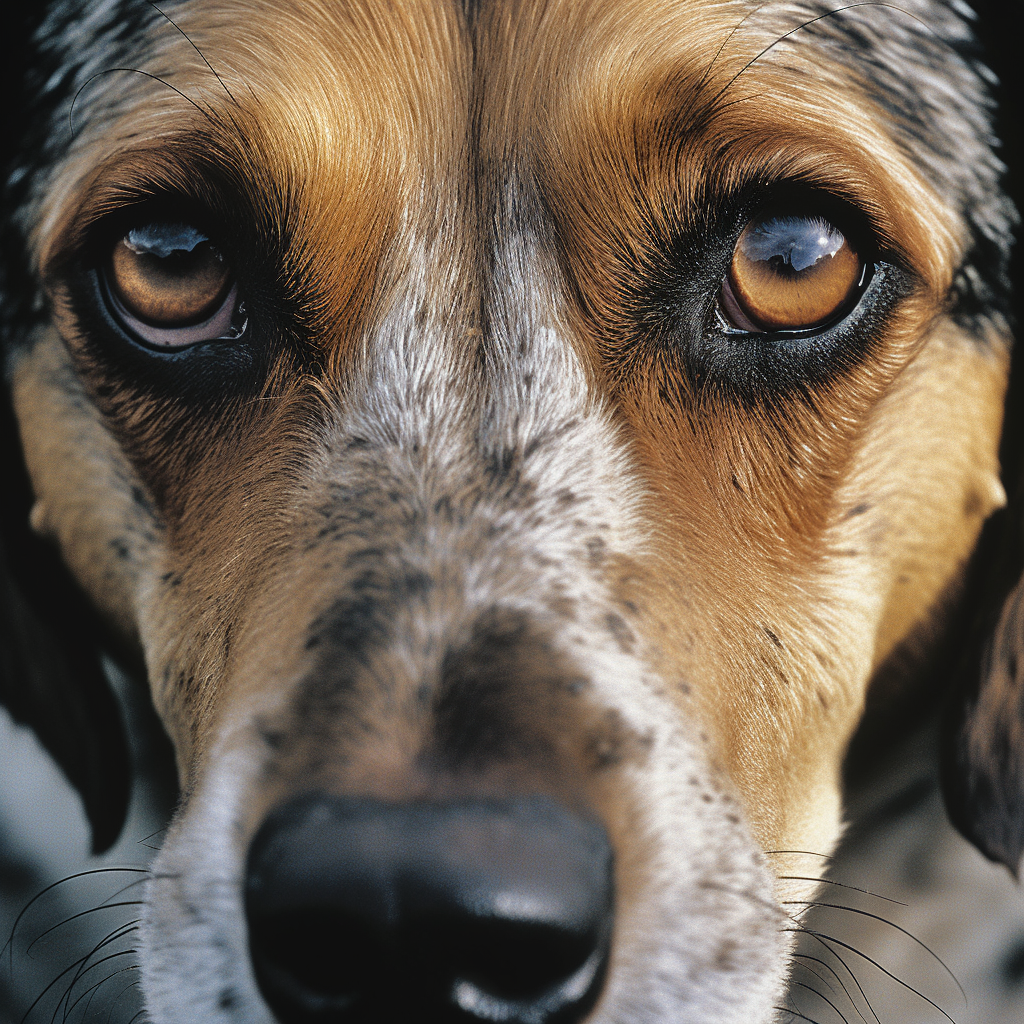Signs and Symptoms of Eye Cancer in Dogs and How to Prevent It

As a dog owner, keeping your pet healthy and safe is of paramount importance. Dogs, certain breeds more than others, are prone to numerous health issues, some of which can be quite serious if not addressed promptly. One such problem is eye cancer. This article aims to provide information about the signs, symptoms, and preventive measures of eye cancer in dogs.
Understanding Eye Cancer in Dogs
Eye cancer in dogs encompasses a range of malignant conditions that affect different parts of the eye, from the eyelids to the retina. The most common types include melanoma, squamous cell carcinoma, and lymphoma [1]. These cancers can be devastating if not detected and treated early. Therefore, recognizing the signs and symptoms of eye cancer is crucial for dog owners.
Signs and Symptoms of Eye Cancer in Dogs
It's important to note that symptoms can vary depending on the type and location of the tumor. However, here are some common signs that may indicate your dog has eye cancer:
- Change in Eye Appearance: An abrupt change in your dog's eye appearance, such as a change in color, size, or shape, may be a symptom of eye cancer [2].
- Visual Impairment: If your dog seems to bump into furniture, has trouble fetching, or displays a general decline in visual acuity, these could be early signs of vision loss due to cancer.
- Eye Discharge or Bleeding: Persistent discharge, bleeding, or frequent tearing can be indicative of a serious underlying issue, including eye cancer.
- Swelling or Inflammation: Inflammation around the eye, which could manifest as redness, swelling, or the appearance of a lump, is another symptom to watch out for [2].
- Behavioral Changes: If your dog shows signs of discomfort like excessive pawing at the eyes, squinting, or increased sensitivity to light, it's wise to consult a veterinarian.
Diagnosing Eye Cancer in Dogs
If you notice any of the above signs or symptoms, it's essential to visit a veterinarian promptly. The vet may conduct a thorough physical exam, ocular ultrasound, CT scan, or biopsy to diagnose eye cancer [3].
Preventing Eye Cancer in Dogs
While the precise cause of eye cancer in dogs is still not fully understood, certain risk factors are identified, such as exposure to ultraviolet radiation, certain breeds predisposition, and age [4]. Despite these factors, there are a few measures that may help reduce your dog's risk of developing eye cancer:
- Regular Vet Check-ups: Routine veterinary exams can help detect any abnormality early, increasing the chance of successful treatment.
- UV Protection: Minimizing your dog's exposure to harmful UV rays may lower the risk of developing eye cancer. Consider providing a shaded area for your dog to rest outdoors and protective eyewear designed for dogs when out in the sun, especially if they are on bright beaches or snowy environments for extended periods of time.
- Nutrition: While there's no definitive research linking diet and eye cancer in dogs, a balanced diet rich in antioxidants and omega-3 fatty acids can potentially boost your dog's overall health and immunity [1]. Nutrients like vitamins A, C, and E, along with the mineral zinc, are known to help maintain healthy eyes in general [2].
- Avoid Carcinogens: Exposure to tobacco smoke and certain chemicals may increase the risk of various cancers in dogs, including eye cancer [3]. Try to limit your dog's exposure to these harmful substances.
- Regular Exercise: While exercise doesn't directly prevent eye cancer, regular physical activity helps maintain your dog's overall health and robust immune system, which can contribute to cancer prevention [4].
Treatment Options
If your dog is diagnosed with eye cancer, the treatment will depend on the type, size, and location of the tumor, as well as the overall health of your pet. Treatment options could include surgery, radiation therapy, chemotherapy, or a combination of these5. Your veterinarian or a veterinary oncologist will be able to provide the most appropriate treatment plan for your dog.
Conclusion
Eye cancer in dogs can be a severe health concern, but with early detection and treatment, many dogs live a healthy and happy life post-diagnosis. As a responsible dog owner, being aware of the signs and symptoms of eye cancer can make a significant difference. Regular vet check-ups, a balanced diet, UV protection, and maintaining an overall healthy lifestyle for your pet can also help in prevention. Remember, your dog's health is in your hands, and you are their best defense against diseases like eye cancer.
- Freeman LM. Beneficial Effects of Omega-3 Fatty Acids in Cardiovascular Disease. Journal of Small Animal Practice. 2010.
- Skorobogatov VA, et al. Effects of Vitamins A and E on the Eye. Vestnik Oftalmologii. 2018.
- Reif JS, et al. Passive Smoking and Canine Lung Cancer Risk. American Journal of Epidemiology. 1992.
- Buzhardt L. Benefits of Exercise for Dogs. VCA Hospitals. 2016.
- Moore AS, Frimberger AE. Veterinary Oncology: A Short Textbook. Springer; 2016.



Comments